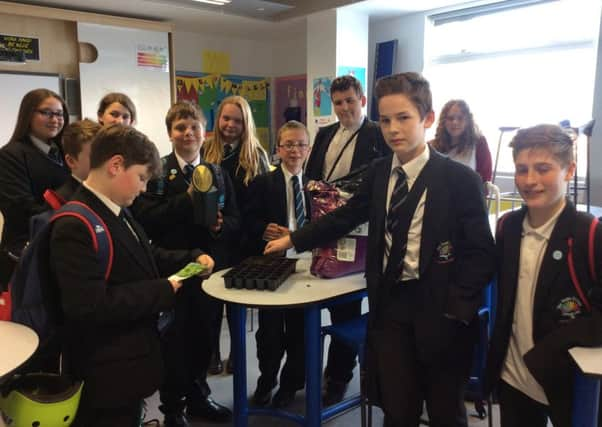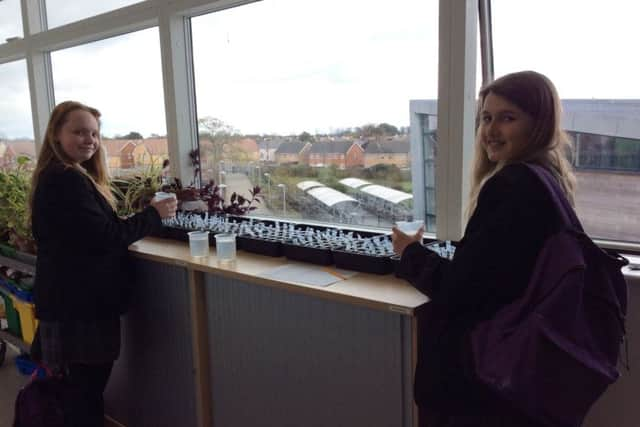Regis School immersed in space experiment
This article contains affiliate links. We may earn a small commission on items purchased through this article, but that does not affect our editorial judgement.


The school is taking part in the Rocket Science nationwide experiment, cultivating ordinary seeds alongside those that have spent six months on the International Space Station.
Science teacher Nikki Manley said: “The pupils involved attend a special Rocket Science club every week after school and have already learned about healthy eating for space travellers, how rockets work, mutations in seeds and growing food for space exploration.”
Advertisement
Hide AdAdvertisement
Hide AdThe club has been running since February and before the pupils received the seeds, they learned about the challenges of growing plants in space.


This has included sessions on growing food for space exploration, genetic mutations due to radiation, building rockets and healthy eating for space travellers.
Based on these sessions, pupils made predictions about what they thought the plants might look like. Suggestions included plants growing sideways, due to the lack of gravity in space, and different coloured leaves, due to mutations.
Miss Manley added: “The week before the seeds arrived, we made labels out of plastic milk bottles for all 200 seeds.
Advertisement
Hide AdAdvertisement
Hide Ad“This was a very long and laborious job, and it took our group an hour and a half to cut out and label each one.


“Finally, after weeks of anticipation, the seeds arrived in two packets, one red and one blue. It is not known which packet contained the seeds that have been in the International Space Station with Tim Peake and pupils tried to predict which ones they thought they were.”
Pupils prepared eight trays, each containing 25 modules cut from larger seed trays. These were filled with compost and then labelled.
The trays were arranged randomly on a window sill and pupils are watering and turning the trays every two days. They are also attending extra after-school sessions to measure, record and analyse the progress.
Advertisement
Hide AdAdvertisement
Hide AdMiss Manley said: “We are excited and eager to see if being in space really has had any effect on the seeds and we are already studying them, trying to decide if the red or blue packets are growing differently.”
The study will be completed on May 24.
Pupils will then enter their findings in a national database and all results will be analysed by professional biostatisticians.
Don’t miss out on all the latest breaking news where you live.
Here are four ways you can be sure you’ll be amongst the first to know what’s going on.
1 – Make our website your homepage at www.bognor.co.uk
Advertisement
Hide AdAdvertisement
Hide Ad2 – Like our Facebook pages at Bognor Regis Observer Facebook
3 – Follow us on Twitter at @BogObserver
4 – Register with us by clicking on ‘sign in’ (top right corner). You can then receive our daily newsletter AND add your point of view to stories that you read here.
And do share with your family and friends – so they don’t miss out!
The Bognor Regis Observer – always the first with your local news.
Be part of it.